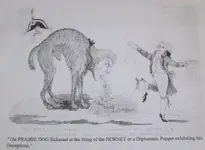bigscoop
Gold Member
- Joined
- Jun 4, 2010
- Messages
- 13,541
- Reaction score
- 9,086
- Golden Thread
- 0
- Location
- Wherever there be treasure!
- Detector(s) used
- Older blue Excal with full mods, Equinox 800.
- Primary Interest:
- All Treasure Hunting
bigscoop, you keep accusing people of changing things about the story, but didn't you change the story yourself, by saying the hunting party didn't really happen, but was a possible cover story for something else? Isn't that creating an entirely different tale? I tend to agree with that possibility, btw. No one is changing anything, just considering possibilities. If we don't consider possibilities, how will we ever find out anything? And judging by what I know of the past, I can tell you that alternate spellings of names is no great reason for concern.
I believe I've used "we" in a lot of those statements. And I believe I've allowed one basic change that I'm aware of and that being the possible alternate source and true cause.
And if you want to believe that the author made such a grave error in the spelling of the vital character's name then go ahead. But you still won't find a good suspect, just as the thousands of quality researchers before you have been unable to do.
Nothing new can be found unless we look in new places. Rehashing the same old dirt isn't going to bring about anything new because there's nothing new there left to be found. Ward, Hutter, etc., etc.,.....there's no skin left on these mauled bones.
Last edited:



 Sorry it isn't consistent with all the local myth and lore.
Sorry it isn't consistent with all the local myth and lore. ......j/k
......j/k
